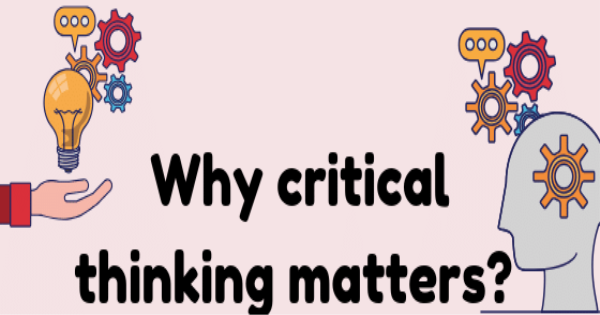Exams can be stressful, but anxiety doesn’t have to hold you back. Whether you’re a student preparing for a critical test or someone dealing with performance pressure, learning how to manage exam anxiety can help you perform better and stay calm. In this guide, we will explore effective strategies to overcome exam anxiety and build confidence.

What is Exam Anxiety?
Exam anxiety is a psychological condition that causes stress, nervousness, and fear before or during an exam. While a little stress is normal, excessive anxiety can negatively impact performance.
Common Symptoms of Exam Anxiety
| Physical Symptoms | Emotional Symptoms | Cognitive Symptoms |
|---|---|---|
| Rapid heartbeat | Fear of failure | Difficulty concentrating |
| Sweating | Low self-confidence | Negative thinking |
| Nausea | Irritability | Forgetfulness |
| Headache | Panic attacks | Mental blocks |
Causes of Exam Anxiety
Exam anxiety can arise from various factors, affecting students both mentally and physically. Understanding these causes can help in managing and overcoming anxiety effectively.
1. Lack of Preparation
When students do not allocate enough time for studying, they often resort to last-minute cramming, which increases stress levels. A lack of structured revision can leave them feeling unprepared and anxious about their performance.
2. Fear of Failure
Many students experience performance anxiety due to high expectations from parents, teachers, or even themselves. This fear of disappointing others can lead to excessive pressure, making it difficult to focus during exams.
3. Poor Time Management
Inefficient time management leads to an overwhelming workload, causing stress and anxiety. Without a well-organized study schedule, students may struggle to balance different subjects and assignments.
4. Negative Self-Talk
Self-doubt and negative thinking patterns can lower confidence levels. Constantly telling oneself "I’m not good enough" or "I will fail" creates a mental barrier that affects concentration and performance.
5. Unhealthy Lifestyle Habits
A lack of proper sleep, poor nutrition, and minimal physical activity contribute to increased stress levels. Unhealthy eating and excessive caffeine intake can cause energy crashes, affecting cognitive function during exams.
6. High Expectations and Perfectionism
Students who set unrealistic goals for themselves may struggle with anxiety when they feel they are not meeting their own high standards. This perfectionist mindset can make exams seem more stressful than they actually are.
7. Previous Negative Experiences
Past failures or difficult exam experiences can lead to recurring anxiety. If a student has faced a tough exam in the past, they might carry that fear into future tests, impacting their confidence and performance.

Effective Strategies to Overcome Exam Anxiety
1. Create a Study Plan
A well-organized study plan helps reduce stress and ensures all topics are covered.
-
Set realistic goals
-
Use a study timetable
-
Allocate breaks to avoid burnout
2. Use Active Learning Techniques
Passive reading isn’t enough; engage with your material.
-
Take notes in your own words
-
Use flashcards and mind maps
-
Teach the material to someone else
3. Practice Relaxation Techniques
Relaxation helps to reduce stress and maintain focus.
-
Deep breathing exercises
-
Progressive muscle relaxation
-
Meditation and mindfulness
4. Get Enough Sleep
Lack of sleep affects memory retention and concentration.
-
Maintain a consistent sleep schedule
-
Avoid screens before bedtime
-
Take short naps if necessary
5. Eat a Balanced Diet
Nutrition plays a crucial role in brain function.
-
Eat foods rich in omega-3 and antioxidants
-
Avoid excessive caffeine and sugar
-
Stay hydrated
6. Exercise Regularly
Physical activity releases endorphins that help in stress reduction.
-
Go for a walk or jog
-
Try yoga or stretching exercises
-
Engage in sports
7. Challenge Negative Thoughts
Replace negative self-talk with positive affirmations.
-
"I am well-prepared for this exam."
-
"I can stay calm and focused."
-
"I will do my best."
8. Take Mock Tests
Practicing under exam conditions helps in familiarization.
-
Time yourself while solving past papers
-
Identify weak areas and improve them
-
Simulate exam conditions at home
9. Develop Test-Taking Strategies
-
Read all questions carefully before answering
-
Manage time wisely
-
Start with easier questions to build confidence
10. Seek Support from Peers and Mentors
-
Join study groups for motivation
-
Discuss difficult topics with teachers or tutors
-
Share experiences with friends to reduce stress
11. Practice Visualization Techniques
Visualizing success can help reduce anxiety and boost confidence.
-
Imagine yourself calmly answering questions
-
Picture a positive exam experience
-
Reinforce self-belief through visualization exercises
12. Use Aromatherapy and Music
Certain scents and sounds can help reduce stress and enhance focus.
-
Use lavender or peppermint essential oils for relaxation
-
Listen to calming music while studying
-
Try binaural beats to improve concentration
Quick Tips to Stay Calm on Exam Day
| Do’s | Don’ts |
| Take deep breaths | Skip breakfast |
| Arrive early | Cram last-minute |
| Stay positive | Compare yourself with others |
| Read instructions carefully | Rush through questions |
| Focus on one question at a time | Panic if stuck |
Related Articles
-
 Ilmkidunya 05/Aug/2025
Ilmkidunya 05/Aug/2025How to Choose the Right Career Path as a Student
-
 Ilmkidunya 01/Aug/2025
Ilmkidunya 01/Aug/2025Trusted Education Consultants in Pakistan – Students Club
-
 Ilmkidunya 01/Aug/2025
Ilmkidunya 01/Aug/2025How Entry Test Patterns Are Changing in 2025
-
 Ilmkidunya 01/Aug/2025
Ilmkidunya 01/Aug/2025How to Prepare for University Admissions in 2025
-
 Ilmkidunya 27/Jul/2025
Ilmkidunya 27/Jul/2025Study vs. Skill: What Really Gets You Hired in 2025
-
 Ilmkidunya 27/Jul/2025
Ilmkidunya 27/Jul/2025Top 5 Career Options After FSC (Pre-Medical) in 2025
-
 Ilmkidunya 17/Jul/2025
Ilmkidunya 17/Jul/20255 Jobs for Computer Science & IT Students That Do Not Need Programming
-
 ilmkidunya 11/Jul/2025
ilmkidunya 11/Jul/2025Understanding Aptitude and Its Role in Career Planning
-
 Ilmkidunya 08/Jul/2025
Ilmkidunya 08/Jul/2025Top 10 Universities in Lahore – 2025 Guide
-
 Ilmkidunya 01/Jul/2025
Ilmkidunya 01/Jul/2025The Future of Artificial Intelligence in the Job Market
-
 Ilmkidunya 30/Jun/2025
Ilmkidunya 30/Jun/2025How to Set and Achieve SMART Goals
-
 Ilmkidunya 23/Jun/2025
Ilmkidunya 23/Jun/2025Top 10 Engineering Degrees With The Highest Demand in 2025
-
 Ilmkidunya 13/Jun/2025
Ilmkidunya 13/Jun/2025How Internships Help Shape Career Goals
-
 Ilmkidunya 13/Jun/2025
Ilmkidunya 13/Jun/2025Why Critical Thinking Matters Today More Than Ever
-
 ilmkidunya 21/May/2025
ilmkidunya 21/May/2025Top Tips for Building a Strong Academic CV in 2025 – Even with No Experience
-
 Ilmkidunya 14/May/2025
Ilmkidunya 14/May/2025How Languages Shape the Way We Think
-
 Ilmkidunya 13/May/2025
Ilmkidunya 13/May/2025From Idea to Invention: How Students Can Be Innovators
-
 Ilmkidunya 12/May/2025
Ilmkidunya 12/May/2025How to Learn Anything Faster: Techniques Backed by Science
-
 Ilmkidunya 06/May/2025
Ilmkidunya 06/May/2025Top Programming Languages to Learn in 2025
-
 ilmkidunya 28/Apr/2025
ilmkidunya 28/Apr/2025Best Short Courses Students Can Take After Matric and Intermediate

.gif)









.png)


Share Your Comments Questions Here